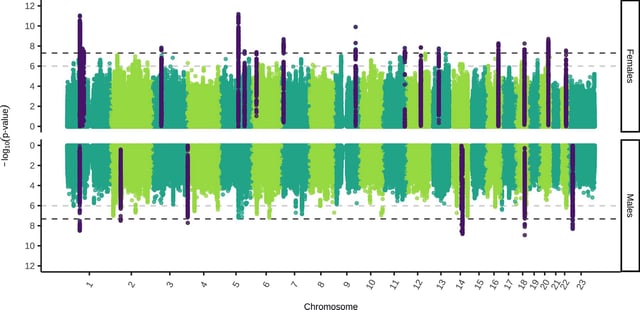Overview
- Published in Nature Communications and led by Australia’s QIMR Berghofer, the meta-analysis is one of the largest to parse depression genetics by sex.
- The study examined DNA from five international cohorts, including 130,471 women and 64,805 men with major depression, plus 159,521 women and 132,185 men without the diagnosis.
- Researchers identified roughly 7,000 genetic changes linked to depression in both sexes and about 6,000 additional changes linked only in females, yielding nearly twice as many female-associated markers overall.
- Genetic signals for depression in females showed stronger correlations with metabolic traits such as body mass index and metabolic syndrome.
- The authors released summary results publicly and noted limits including European-ancestry samples and more female cases, while stressing that environmental and social factors remain crucial to depression risk.



